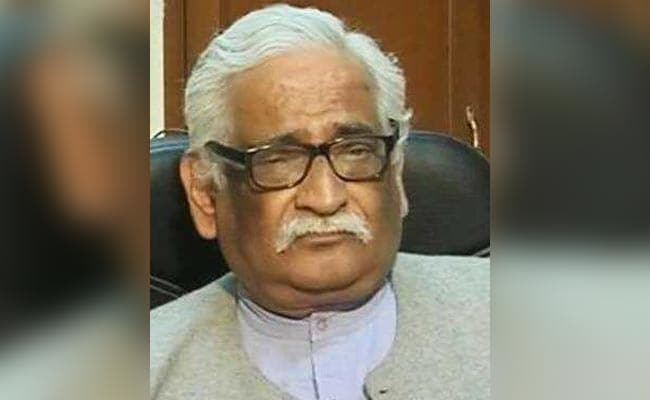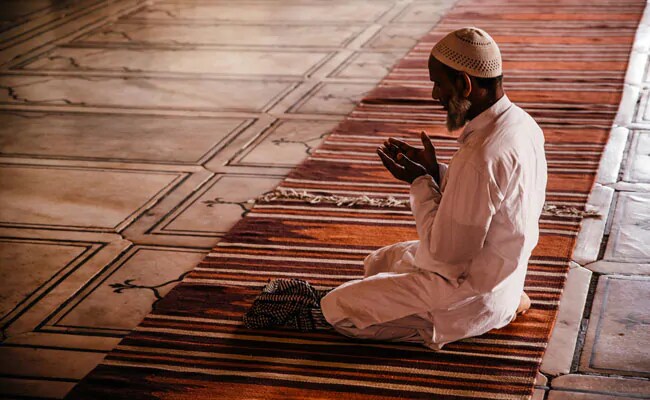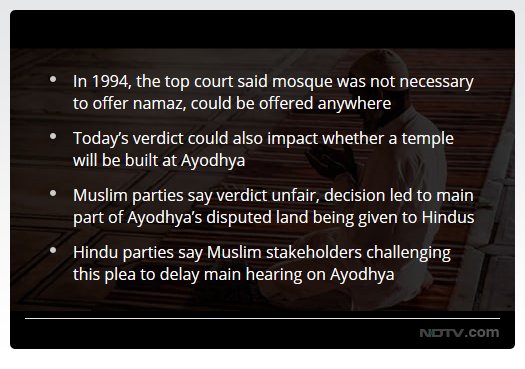The Supreme Court has refused to revisit its 1994 ruling that the government can acquire land that a mosque is built on. In the Ismail Farooqui judgement, the court had ruled then that namaz or prayers can be offered anywhere and a mosque is not essential. The ruling will not be referred to a larger bench, the three-judge Bench headed by Chief Justice Dipak Misra said. It could also be one of the last verdicts that Chief Justice Misra deliver, before he retires.
In 1994, the Supreme Court said that namaz could be offered anywhere and that a mosque was not necessary. This cleared the way for the government taking over the land where the 16th century Babri mosque was razed in December 1992 by Hindu hardliners who believed it was built on Lord Ram's birthplace.
Muslim litigants say that this decades-old verdict played a big role in the disputed land in Ayodhya being divided in 2010 into three parts by the Allahabad High Court: it split the land between Hindu and Muslim parties, though the main part was given to Hindus. The Babri Masjid, a 16th century mosque was destroyed in 1992 by karsewaks or right-wing volunteers who said that it had to be brought down so that a temple could be built to Lord Ram, who they say was born right here.
Here are the LIVE updates on the story:
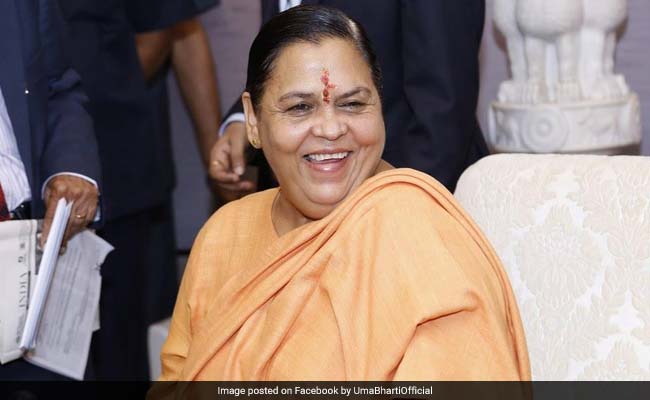 Read: Ayodhya Important for Hindus, Mecca Important For Muslims, Says Uma Bharti
Read: Ayodhya Important for Hindus, Mecca Important For Muslims, Says Uma BhartiUnion Minister Uma Bharti said today that Ayodhya is an important holy site for Hindus, not for Muslims, for whom that place is Mecca.
 A Top Court Decision Today Means Ayodhya Case Hearings From October 29
A Top Court Decision Today Means Ayodhya Case Hearings From October 29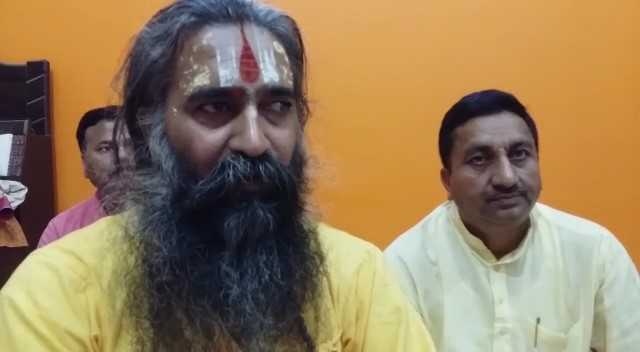
- What is essential to religion as laid down in Ismail Faruqui was arrived at without comprehensive examination, needs to be re-examined in detail.
- Questionable observations in Ismail Faruqui have permeated the Allahabad High Court verdict
- Congress has diverted the issue with adding impractical arguments in the original case
- If the land belongs to Ram temple and had been registered
- Even archaeology survey of India had also proved that there are evidences of Lord Ram
- Without stretching the issue judgment should be made
- That land belongs to Lord Ram and Ram temple should be built there
- The Supreme Court's verdict relating to Ismail Faruqui will be essential as it has direct connection with Ayodhya case
- Our advice is that Faruqui's case should be referred to the larger constitutional bench
- Any matter relating to any religion requires the checking up of the source of that that religion which is a constitutional requirement
- The main sources in Islam are Quran, Hadis and Islamic law
